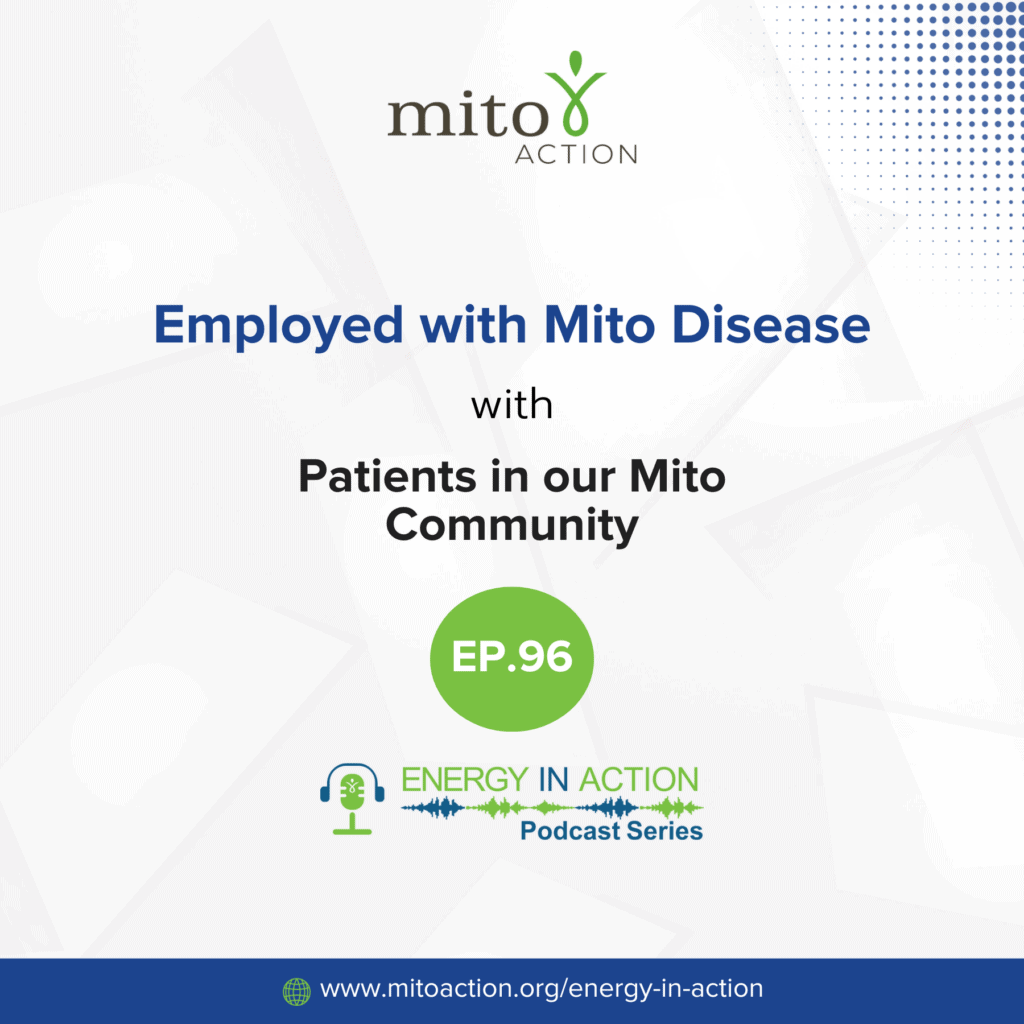
EPISODE HIGHLIGHTS
Tasia, can you tell us about yourself and the work you do?
I’m 31 and I was diagnosed at a young age with fatty oxidation disorder. As a teen I started a clinical trial until it became an FDA-approved medication and it worked well for me. I went to business school and I currently work in research and development as a government contractor. I have a typical desk job that suits my needs. My employer has remained flexible for me to attend appointments and otherwise manage my health.
Bill, can you tell us about yourself and the work you do?
I live in Alaska and I have a pathogenicCausing disease. Often used in reference to harmful DNA mutations. mutation but no final diagnosis yet. I’ve gone through a lot of genetic testing that revealed my genetic mutation. I work as a commercial diver and I work on bridges, dams, oil platforms and in heavy construction. It’s all very physically-exerting work. I’ve been doing this work for 25 years, but with the health changes I’ve experienced, I’ve had to stop going on jobs and in the water. This accelerated my move into an office role and my employer has made a lot of accommodationsChanges that remove the barriers to learning. They can also change how and what the children is expected to learn and know. for me.
Nina, can you tell us about yourself and the work you do?
I’m from Florida and about two years ago, I had a sudden onset of symptoms after taking a medication and it took over a year to be diagnosed with POLG2 which is a chronic and progressive condition. I’m currently working part time as a customer service representative and I’m able to work from home. I’m finding it’s increasingly difficult to talk and type simultaneously, so I’m working with a vocational rehabilitation program to transition to a more behind-the-scenes role that will better support my health and needs.
Bill, do you feel like fatigueThe overall feeling of tiredness or lack of energy. It is not the same as simply feeling drowsy or sleepy. Being fatigued means having no motivation or energy. caused by stress affects you more by the end of the day?
This has been a struggle for me. To some degree, the demands of an office role are more taxing than a physical role. If I use all my energy at work, I’m affected when I go home because I don’t have the energy to do tasks at home. Managing stress and trying not to give everything to my work is a constant balancing act.
Tasia, do you feel any guilt about not being able to produce as much or perform as well at work?
I feel the need to compensate when I’m feeling well, going the extra mile. The next week, I may be functioning at only 75%. I think it’s common to feel the need to do more when you can to make up for when you’re lacking. I’ve learned I can’t say yes to everything and I need to find balance in the workplace, not allowing my urge to over-compensate get me in trouble.
Nina, have you had any difficult discussions about mitochondrialRelated to the mitochondria. disease with your boss?
I’ve had a few awkward conversations with employers. I think it’s difficult to talk about mitochondrial disease and the impact it has on you because it can be an invisible illness. There’s also restrictions about what you can and can’t share about accommodations.
What advice do you have for young people at the beginning of their career who will need to navigate the demands of the workforce and their health and wellbeing but want to grow professionally?
Widen your possibilities so you can work in a field that interests you, but has a lot of variety in the job options. Understand you’re an asset, not a burden. Don’t be afraid to ask for what you need to perform your job. Explore alternate ways to partake in your interests, even if you can’t do it full time as a job. Learn about what employers can and can’t ask and what they do and don’t have to offer in terms of accommodations so you can advocate for yourself.
CONNECT WITH MITOACTION
Website
https://www.facebook.com/mitoaction
https://twitter.com/mitoaction
https://www.instagram.com/mitoaction/
https://www.linkedin.com/company/mitoaction










